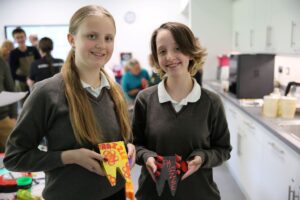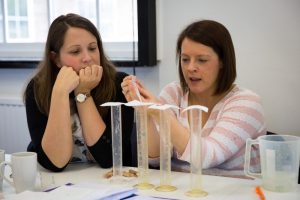A hot summer in the woodland
Tuesday 19th July 2022
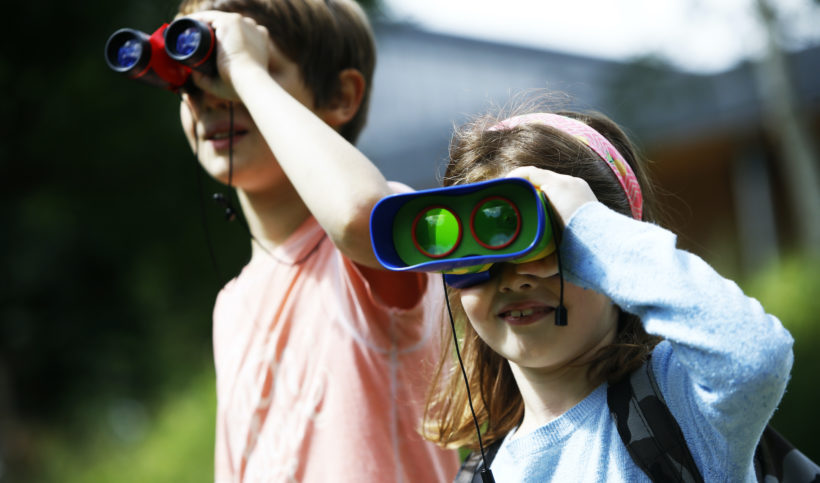
As summer temperatures reach the highest ever recorded in the UK today, the effects on the natural world and how to look after our green spaces and wildlife is on our all minds. Luckily, we’re in good hands at the Science Oxford Centre with our Outdoor Learning and Ecology Manager, Dr Roger Baker — read his woodland update, and top tips to keep a cool head in these unprecedented times.
Summer is here!
My usual role involves maintaining and utilising our woodlands, grasslands and ponds with the help of a team of volunteers and contractors. Some seasons can be more challenging than others, but the summer is generally a rewarding period in which all the hard work is seen to pay off.
I used to be the kind of person who looked forward to hot weather, but it would be hard to deny that these our summers are becoming longer, drier and hotter than ever before, as shown by the record temperatures this week. These days I start to lose sleep when the mercury rises due to the impact this can have on our outdoor spaces at the Science Oxford Centre. There can be no doubt that a prolonged drought has a real impact on nature, but its capacity to recover is impressive. By planting the right plants in the right places we have tried to limit this impact, and sometimes we just have to accept that things cannot always look verdant. Now instead of looking forward to the sunshine, I wait longingly for that musty smell of petrichor brought by the return of rain after a dry spell.
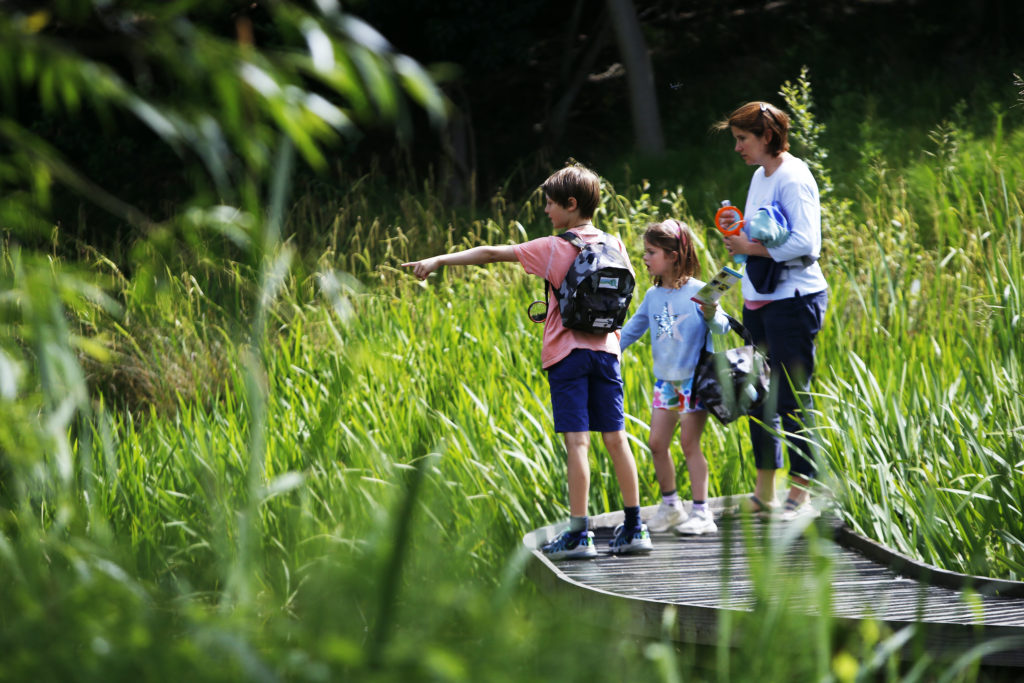
Pond dipping
One of my highlights this year has been running our hugely successful school pond dipping workshops. No two visits down to the water are ever the same. Whether we spot a fearsome dragonfly nymph, a transparent phantom midge larva, a confused whirligig beetle or a caddisfly larva hiding in its case, there is always something unexpected and educational to be found. We’ve just about managed to keep the water levels topped up despite the recent heatwaves, but climate change certainly brings its challenges! If you’re visiting the Centre this summer, pick up our Woodland Trail Map and see what pond life you can spot.
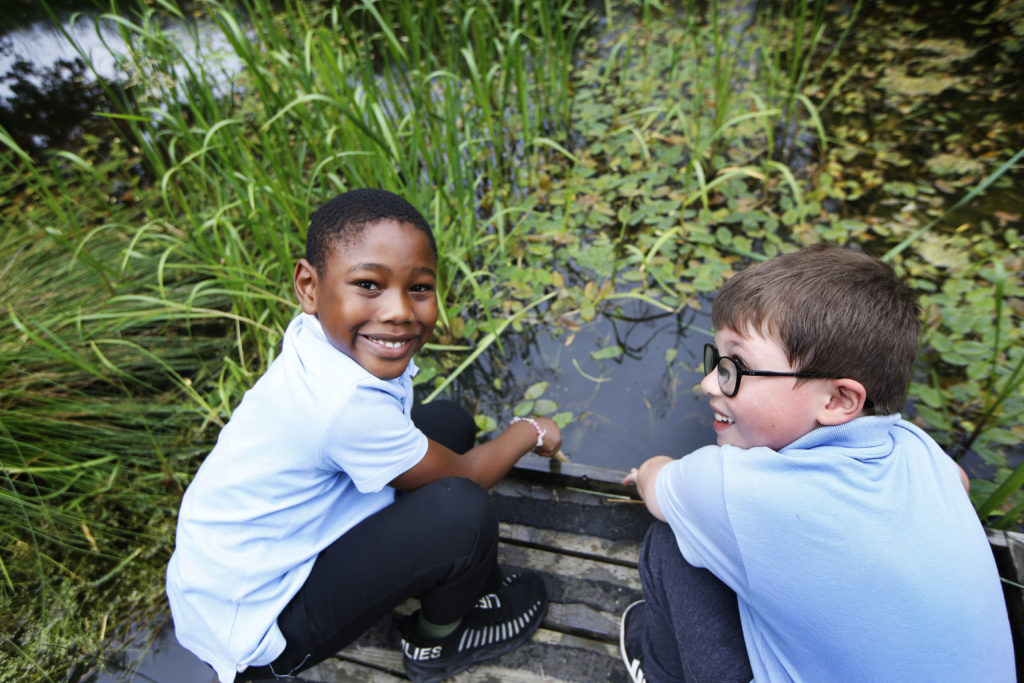
Operation Earth Explorer Backpacks
This Easter we launched our amazing Explorer Backpacks, generously funded through project partners, Operation Earth, a national initiative which aims to inspire children and young people to explore the fascinating world of environmental science. These have been a storming success with our visitors, providing families with equipment to go forth and explore the wonderful wildlife around the Centre. We been very impressed with what we have seen: tape measures deployed to estimate the age of the trees, magnifiers used to count the legs on the minibeasts and compasses aiding the navigation around the woods. It’s been hugely rewarding to see the way that the kit has been embraced to access the outdoor environment – pick up yours for free when you are visiting!
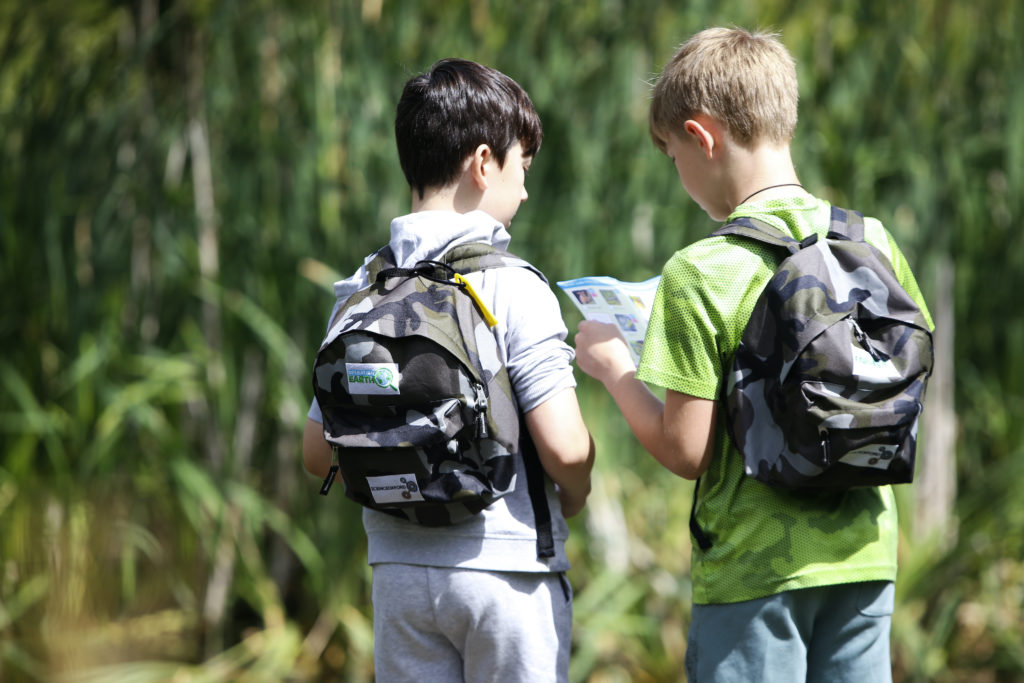

Trees and trails
To guarantee the safety of our visitors, I carry out regular surveys of the trees in our 15 acres of woodland so that we can complete prompt remedial work as necessary. This year I had to make the difficult decision to fell a number of mature trees that had suffered historic damage and were showing significant decay. Being very aware of the role that large trees have in increasing biodiversity, water/air purification and carbon sequestration (storage), among other ecosystem services, I was determined to ensure that the timber produced was used in as sustainable way as possible. As such we have used the wood chip to line the paths, constructed dead hedges using the brash, created habitat features using the branches and even play features using a hollowed out trunk. It is always unfortunate to lose a mature tree, but by retaining the wood on site we can ensure some degree of long term carbon storage, while the new trees that have been planted in their place will store their own carbon as they grow. As we come to terms with the impact of Ash Die Back disease in the UK, we will be making many such difficult decisions in our woodlands over the coming year. The Royal Forestry Society has just published a series of reports covering how landowners are dealing with this devastating disease.
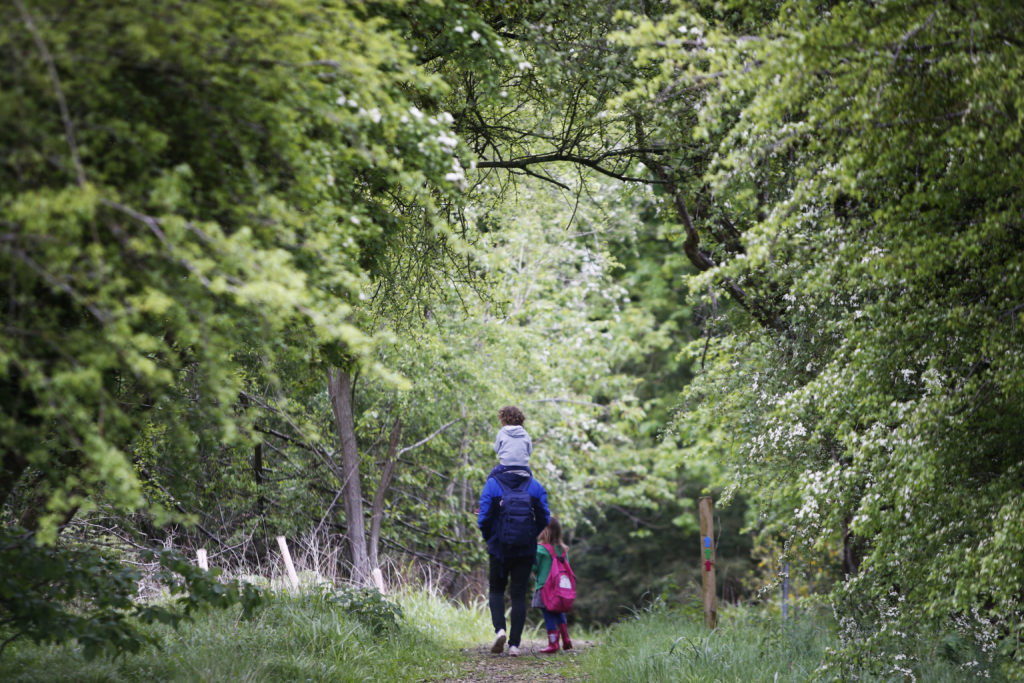
Blooms and butterflies
Like anyone I love to take photographs as I explore the woods, making sure to leave the wildlife as I found it. It is inevitable that just by being there, we cannot help but have a small effect on the environment. In order to protect the more sensitive biodiversity of the site, I occasionally have to restrict access to some areas. Earlier in the summer I fenced off a small patch of grassland where Common spotted orchids are located. These beautiful flowers do not fare well under the feet of groups of school children or the hungry gaze of deer, but by protecting them I hope that the seed they produce will lead to more blooms in subsequent years. Growing and protecting flowers is of course a great way to attract bees, butterflies and other pollinators to gardens and green spaces; if you are wandering in our grassland areas over the next few weeks, then take 15 minutes and contribute to the National Big Butterfly Count!
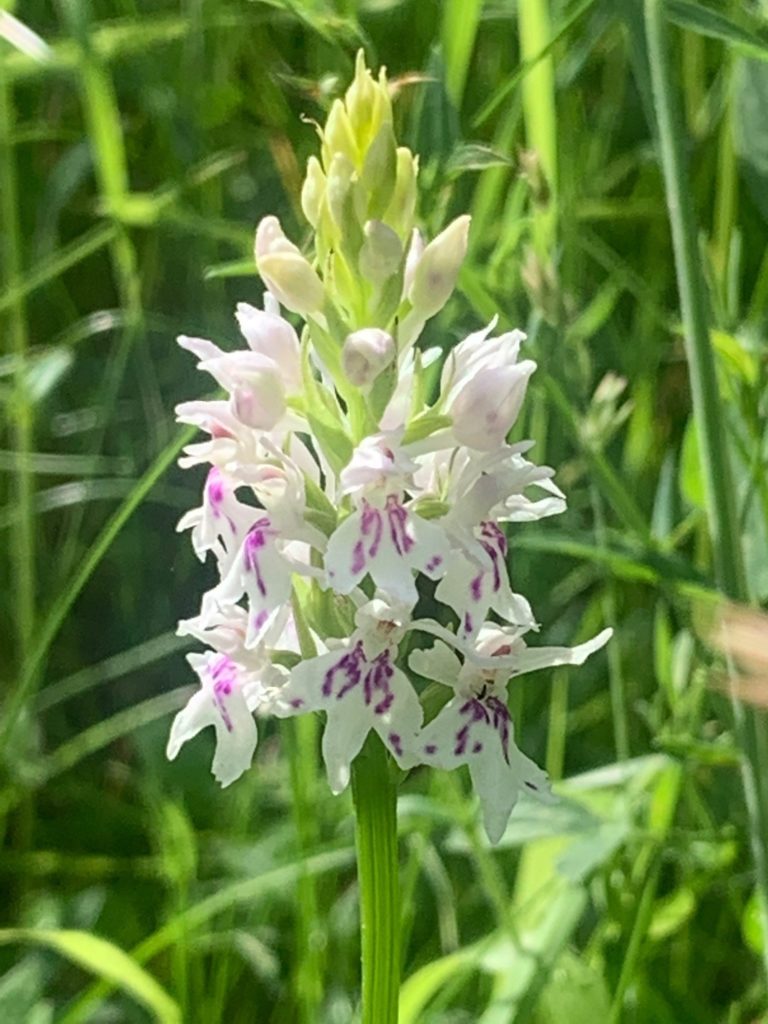
Summer Family Day visits to our Centre run every Saturday and include the Exploration Zone, woodland trails, ponds, the outdoor Water Lab – you are welcome to bring a picnic! Check out our Bee Day on Saturday 30th July, with hands on activities and more thanks to the Oxfordshire BeeKeepers Association. Find out more about our summer events and Summer Science Camps for children age 6-9 and 9-12 here.


